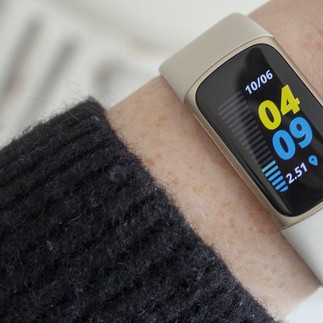Vol. 3 - Moving towards a diplomatic service
- Michael Steffens
- Dec 2, 2021
- 4 min read
In the last two volumes of this threefold saga, we have addressed settling into a new environment and work place. In this edition to the series, we propose specific actions to work towards the ambition of becoming a ‘European Diplomatic Service’ as EEAS Secretary General Stefano Sannino has called for recently. We see this primarily as a matter of professionalization of our expertise and institutional responsiveness.
by Michael Steffens and Luca Palazzotto
Prepare staff to their missions
We hate to start by putting the finger into the wound. In fact, one has to be aware that the Canadian or American civil servants serving in third countries receive an all-around training before taking up their post. They are usually based in their home-base for up to 6 months and receive both language training, cultural sensitivity training and other relevant seminars before they take up their post in missions abroad. When they arrive in their post, they can usually continue with the language classes.
There are many good reasons to implement a proper all-around preparation program for staff in Delegations, but one is particularly important for the institution itself: staff in Delegations has to be aware of and able to support and promote the mission of the EU in the country of assignment. The foundations of a successful mission are laid down during this time of preparation. Before jumping on a plane, one should have clearly in mind what are the strategic interests at stake, risks and challenges inherent to the diplomatic mission in the country and to his specific activity. An adequate training is fundamental for the alignment of the work of the different delegations, and in this sense a specific role should be played by the regional level.
Preparatory seminars on a regional basis
We think that, as part of a comprehensive preparation program, regional seminars would be beneficial for the alignment and performance of EU Delegations along its strategic actions.
There is too little interchange between colleagues in region and increasing the opportunities to liaise would be beneficial for various reasons:
- It would increase synergies and improve integration among country programs;
- It would provide solid foundations and ensure coherence to regional strategic actions;
- It would ensure that the staff has an in-depth understanding of the EU interests in the region and the planned action.
USHU invites Delegations to become more innovative about knowledge management and to activate ensure staff have access to quality information at all times. We also recall our previous newsletters in this saga and encourage management to take suggestions into consideration.
Is that it? It is already a lot, but it is not it.
What else should be in the agenda of a proper preparatory training?
Preparatory language classes
Colleagues should be given access to language training before taking up their new posts and during their mission as part of their professional development.
Language is an essential part to gain traction in our daily work. While one does not have to be fluent in the local language, being able to converse even a little can help to break the ice and leads to better results. It helps to better connect and acquire meaningful insights to inform our programs and enhance relevance of the action.
At minimum, a ‘European Diplomatic Service’ should put languages at the centre of its strategy and train colleagues in Arabic, Chinese and Russian, besides the most common European languages spoken in developing countries. Languages have to be an essential asset to cultivate throughout the institution for the strategic development of its human capital.
USHU calls for a dedicated training approach for the upcoming ‘European Diplomatic Service’ with more emphasis on regional exchanges and languages. Colleagues require more support on these fronts and have to be able to devote more time for this.
Access to knowledge
A great asset of the EU institutions is the capacity to gather an incredible amount of knowledge and information in its platforms. However, access is often a challenge due to the use of concurrent platforms and poor mapping of the content.
We propose to make the existing resources proper working tools. Resources such as Capacity4Development - an excellent platform to access and share knowledge - and the Commission’s Central Library - a great source of knowledge when taking up posts and beyond- should be at the centre of a knowledge management strategy of a ‘European Diplomatic Service’.
We need to ease access to relevant knowledge and information and better integrate the existing tools in our work.
We propose to create a dedicated electronic platform to effectively organize sector, country and region-relevant information. The Central Library could curate relevant reading lists for all cooperation countries and Capacity4Development could open country-relevant sections. Alternatively, the creation of a separate integrated platform should be considered.
In addition, mandatory seminars disseminating the latest research on relevant topics should be part of the mandatory trainings of the staff during their mission, to ensure adequate application of up-to-date knowledge in our programs. On occasion, this may include member states’ or other donors’ staff to discuss specific topics in more detail.
USHU calls on the EEAS to work towards a more structured approach to knowledge sharing and management. We promote the creation of a taskforce to revamp and revitalize existing resources through a more effective customization of the service.
USHU invites also Delegations to ensure that staff has access to quality information at all times.
Handling of sensitive information
Having served in EU institutions for some time, we think more time should be spent to train colleagues on the handling of sensitive information. The use of the various systems in place is not stringent and we find this can be improved. Handling sensitive information should be an important part of the preparatory training, especially for first missions.
The allocation of clear back up functions for all colleagues needs to be streamlined to ensure adequate management of information.
Sign and share our USHU'S Petition to Urgently introduce a Senior Professionals Programme for contract agents
Contribute to our Photo Wall and get a chance to win an ipad mini or a fitbit charge 5 among many other prizes





























Comments